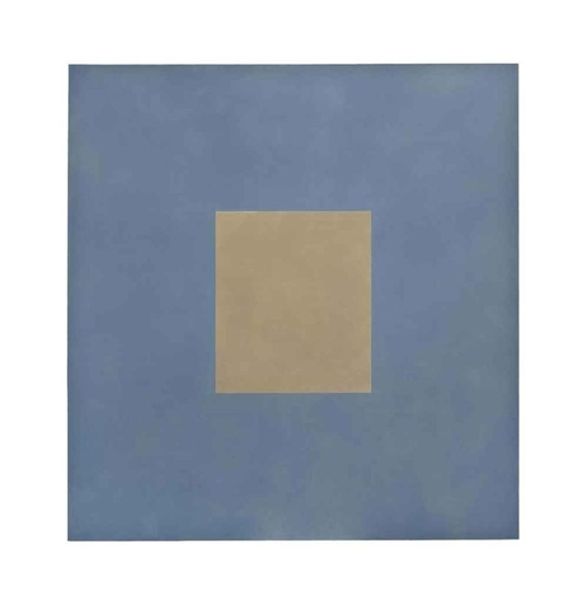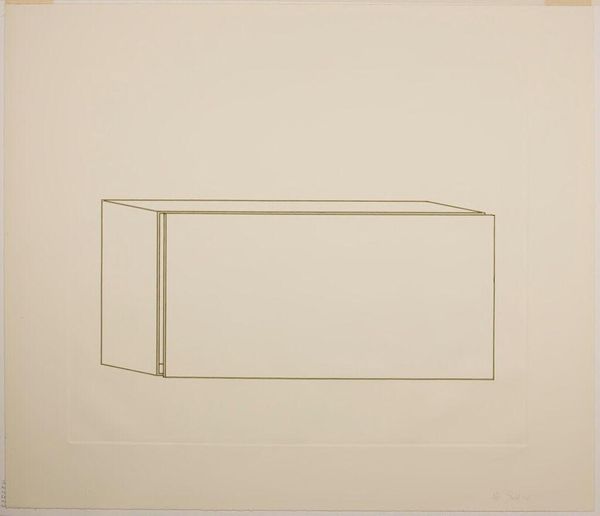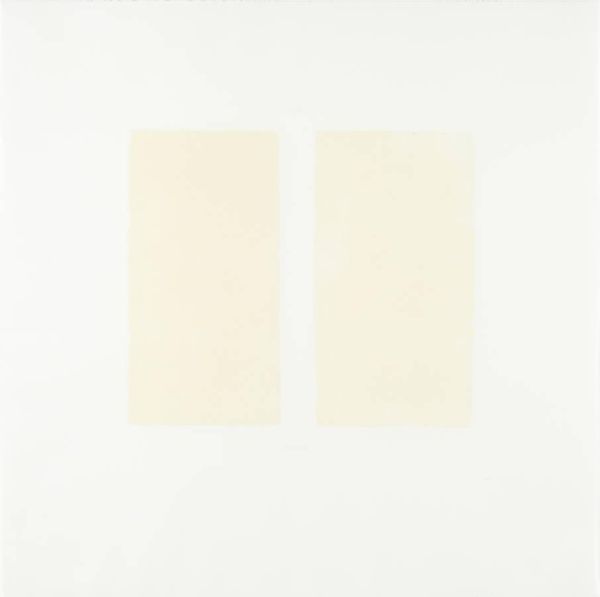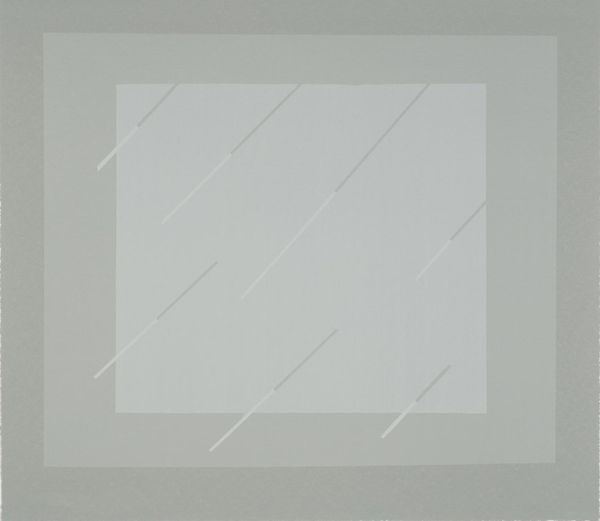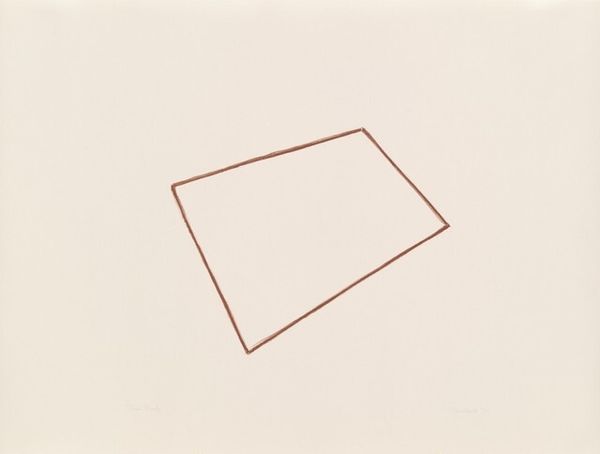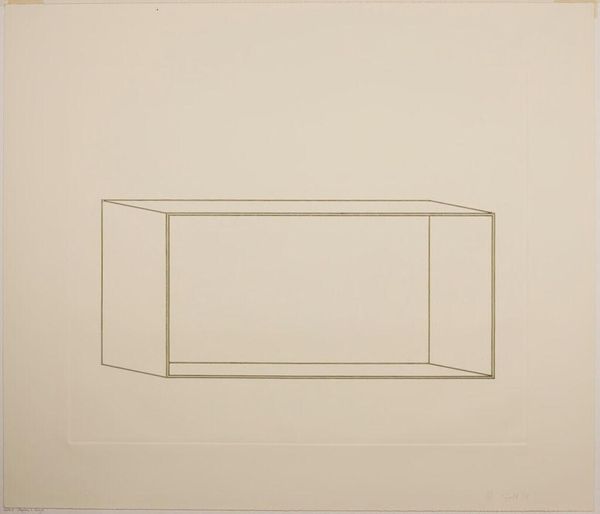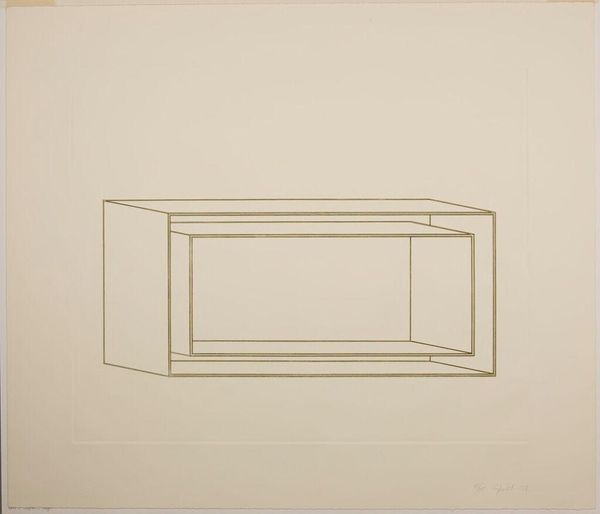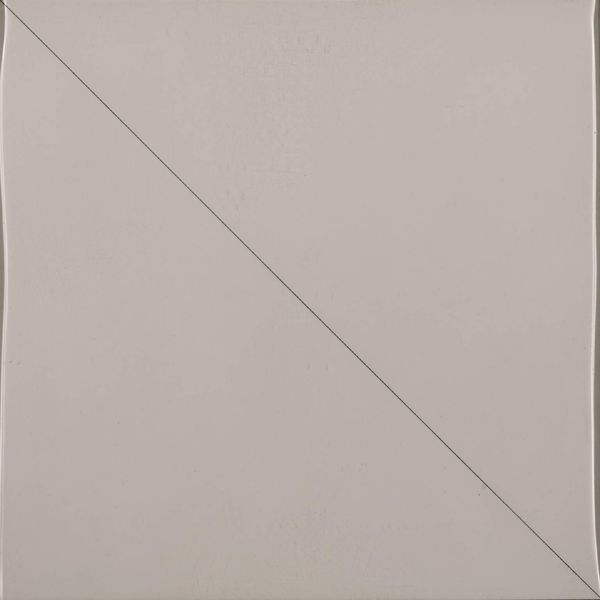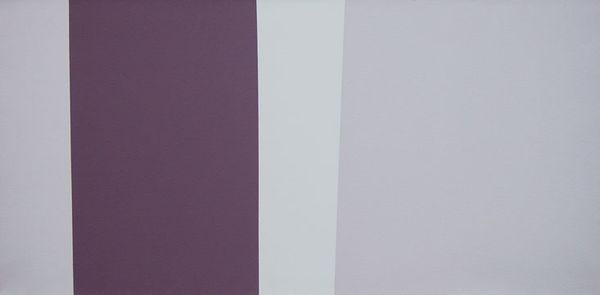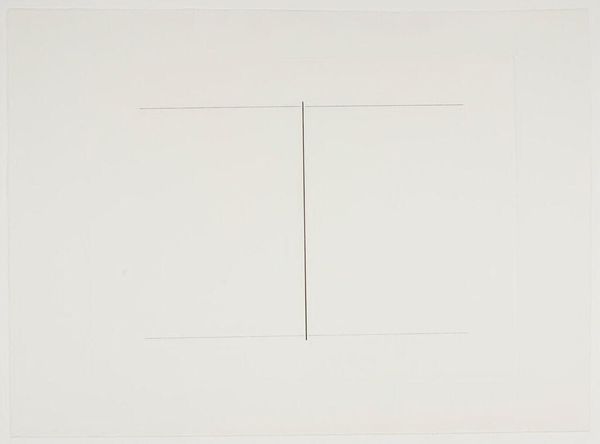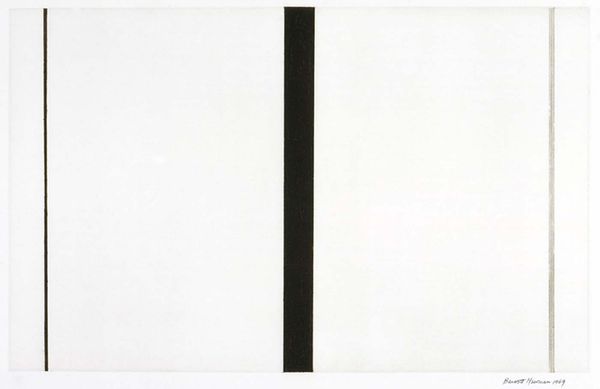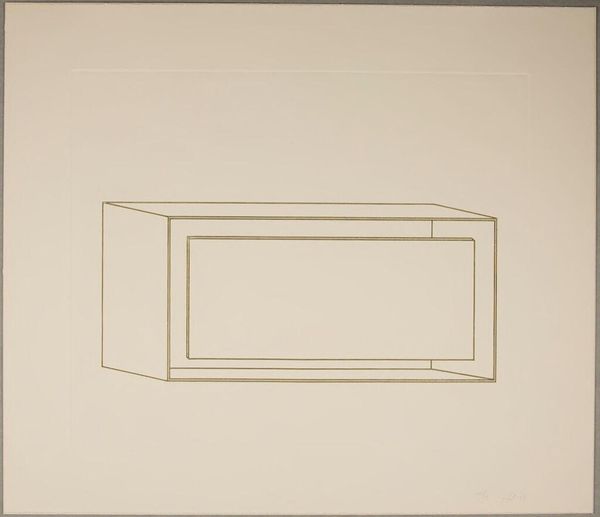
drawing, paper
#
drawing
#
conceptual-art
#
minimalism
#
paper
#
form
#
geometric
#
abstraction
#
line
Copyright: Sol LeWitt,Fair Use
Editor: Here we have an untitled drawing by Sol LeWitt. It features five simple geometric shapes, each in its own frame. They look like they are each individually drawn on paper using some kind of colored pencil or marker, though I wonder if they are printed reproductions of an earlier original... I’m interested to hear what you make of this piece. Curator: LeWitt often utilized others to fabricate his works, shifting the emphasis from the artist's hand to the conceptualization and materialization of the idea. Does that knowledge change how we look at it? Editor: Absolutely! It reframes the work, emphasizing the execution of a plan rather than solely focusing on the aesthetic appeal of the drawing itself. What significance do the individual shapes have within the social context? Curator: Each basic shape – the square, triangle, and circle - represent elemental forms but they don’t exist in a vacuum. LeWitt's serial approach encourages mechanical reproduction. His reliance on simple geometric shapes makes this easier, so what appears to be the most simple, accessible shapes become quite complex when tied to artistic labor. Editor: So, is the "making" the art here, more than the image? Curator: Precisely. The concept, its documentation, and its subsequent iterations and recreations define the art object. The labor and process involved in each execution become part of the work’s meaning. Does that idea challenge your initial interpretation? Editor: It completely transforms my understanding! I now appreciate how LeWitt’s emphasis on reproducibility and delegated fabrication questions traditional notions of artistic skill and originality. The simple forms belie a complex exploration of materiality and production. Curator: Right. It is also an exercise in subverting the market's expectation of art's uniqueness or rarity. Food for thought. Editor: Definitely. Thinking about artistic production like this expands how I consider art and its creation!
Comments
No comments
Be the first to comment and join the conversation on the ultimate creative platform.
